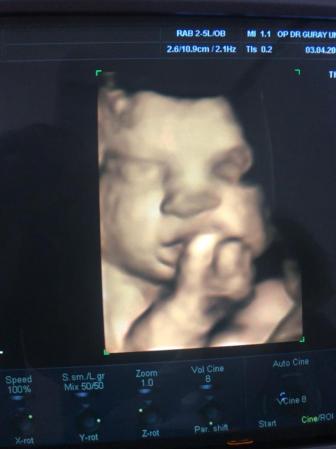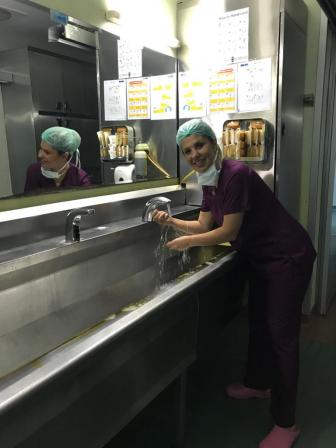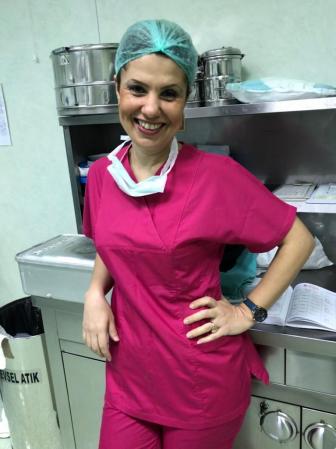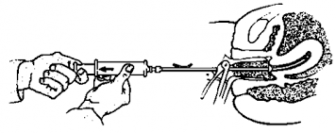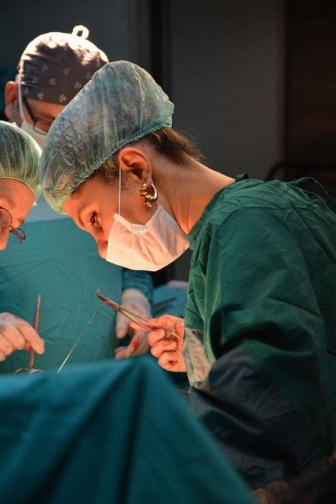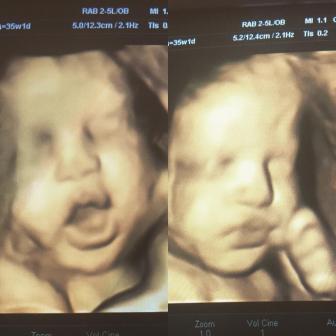GEBELİK BULANTILARI
Şikayetler günde 6 saatten fazla oluyorsa ve günde 5 kezden fazla kusma oluyorsa hamilelikte şiddetli bulantı kusmadan bahsedilir. Gebelikten önce vitamin kullanımı durumunda, bulantıların daha az olduğu görülmüştür.
GEBELİKTE BULANTI NE ZAMAN BAŞLAR, GEBELİKTE BULANTI NE ZAMAN BİTER ?
Hamilelik bulantıları genelde sabahın erken saatlerinde başlar ve kimi zaman gün içinde de devam eder.Genelde son adet tarihinden 6 hafta sonra görülmeye başlar.Bu sıkıntı veren belirti, yaklaşık 6-12 hafta devam eder.Nadiren adet gecikmesi olur olmaz da bulantının başladığı görülür.
HAMİLELİKTE BULANTI HANGİ DURUMLARDA DAHA ÇOK OLUR ? HAMİLELİKTE BULANTI NEDENLERİ NELERDİR ?
Bu belirtiyi ortaya çıkaran neden tam olarak bilinmemektedir.Kişinin geçmişte menier hastalığı gibi bulantılı hastalıklarının olması, taşıt tutmalarının çok gözlenmiş olması bulantının çok olacağını gösterebilir.Bebeğin proteinlerine annenin aşırı tepki göstermesi ya da annenin yapısal olarak bulantı merkezlerinin çok aktif olması düşünülebilir.
İkiz gebeliklerde daha çok olur.
DİĞER GEBELİKTEKİ BULANTI NEDENLERİ NELERDİR ?
Her zaman için bulantının tek nedeninin gebelik olduğu düşünülmemelidir. Troid hastalıkları, idrar yolu enfeksiyonları,böbrek taşları, gastrointestinal hastalıklar, safra kesesi hastalıkları şikayetleri arttırabilir.
Mide ülserinin mikrobu olarak bilinen hemophılus pylori nin de etken olduğu düşünülür.
HAMİLELİKTEKİ BULANTIDA NELER YAPILMALIDIR ?
Midenin boş kalmaması için sık ve az yiyecek yenmelidir. Bulantıları arttıran kokular ve yiyeceklerden kaçınılmalıdır.
Bulantıyı tetikleyen nedenlerden uzak kalmaya ,bulantıların hafiflediği anlarda başka yiyecekler tüketmeyi denemeye çalışmalısınız.
Çok yağlı yiyecekler, fazla sulu yemekler, ağır kokulu baharatlar, lahana, karnıbahar, et, kavrulmuş soğan kokuları, gebelik bulantı ve kusmasını tetikler. Zaten hassas olan gebeyi pişerken kokusu ile uyaran yiyecekler ya başka yerde pişirilmeli, ya da bunların yerine uygun yiyecekler kullanılmalıdır. Örneğin et yerine balık, tavuk, hindi eti tüketilebilir.
Limon ,yoğurt eklemek yemeklerin yenmesini kolaylaştırır.Limon hem C vitamini olarak hem de rahatlatıcı olarak kullanılabilir.
Genelde hamilelikte sabah bulantıları çok olur.Sabahları yataktan kalkınca başlayan bulantılarda bir dilim peynir, bir iki grisini, tuzlu hafif pastalar kullanılabilir.
Sıvı yiyecekleri az tüketmeye ve yemek sonrası bir süre dinlenmeye özen gösterilirse problemler azalabilir. Az ve sık beslenmek yararlıdır.
Kuru ve yumuşak gıdalar, proteinden zengin gıdalar tercih edilebilir.
Proteinden zengin gıdaların bulantıları kesmekte yağ ve nişastalı besinlere göre daha etkili olduğu bilinir.
Baharatlı,yağlı ve asitli gıdalardan uzak durulmalıdır.
Tedavide hastaneye yatış gerekli olabilir.Gebelik bulantılarında serum tedavileriyle ve bazı zarar vermeyen ilaçlarla gebe desteklenebilir.
HAMİLELİKTEKİ BULANTILARDA PSİKOLOJİK DESTEK YAPILMALI MI?
Bulantıların ikinci ve daha sonraki gebeliklerde daha az olduğu bilinir.Anne ikinci gebelikte daha meşguldür,gebeliği bir kez tatmış ve kendinden daha emindir, ilk gebeliğe nazaran daha az gergindir.Dolayısıyla hamilelik bulantılarında psikolojik nedenlerin de etkili olabileceği bilinir.Hastaya işlerinde biraz destek olmak, moral vermek, gebenin bulunduğu ortamdan çıkarak eş dost sohbetlerine katılması iyi olur.
DİPNOT: Her gebeliğinizde muhakkak bulantı beklentisi içinde olmayın.Mümkün olduğunca gebeliği unutmaya çalışarak günlük hayatınıza devam edin. Hakikaten bulantılar kimi zaman yıpratıcı olabiliyor.Kendinize eziyet etmenizin gereği yok, bu konuda kullanılan güzel ilaçlarımız var.Hastaneye yatış 2-3 günlüğüne de olsa iyi olabilir. Özellikle ilk gebeliğinizse hastaneye yatış fikrine sıcak bakmayabilirsiniz, ama genelde tedaviyle, ilk günde bile solan renginiz düzeliverir, çekinmeyin.


